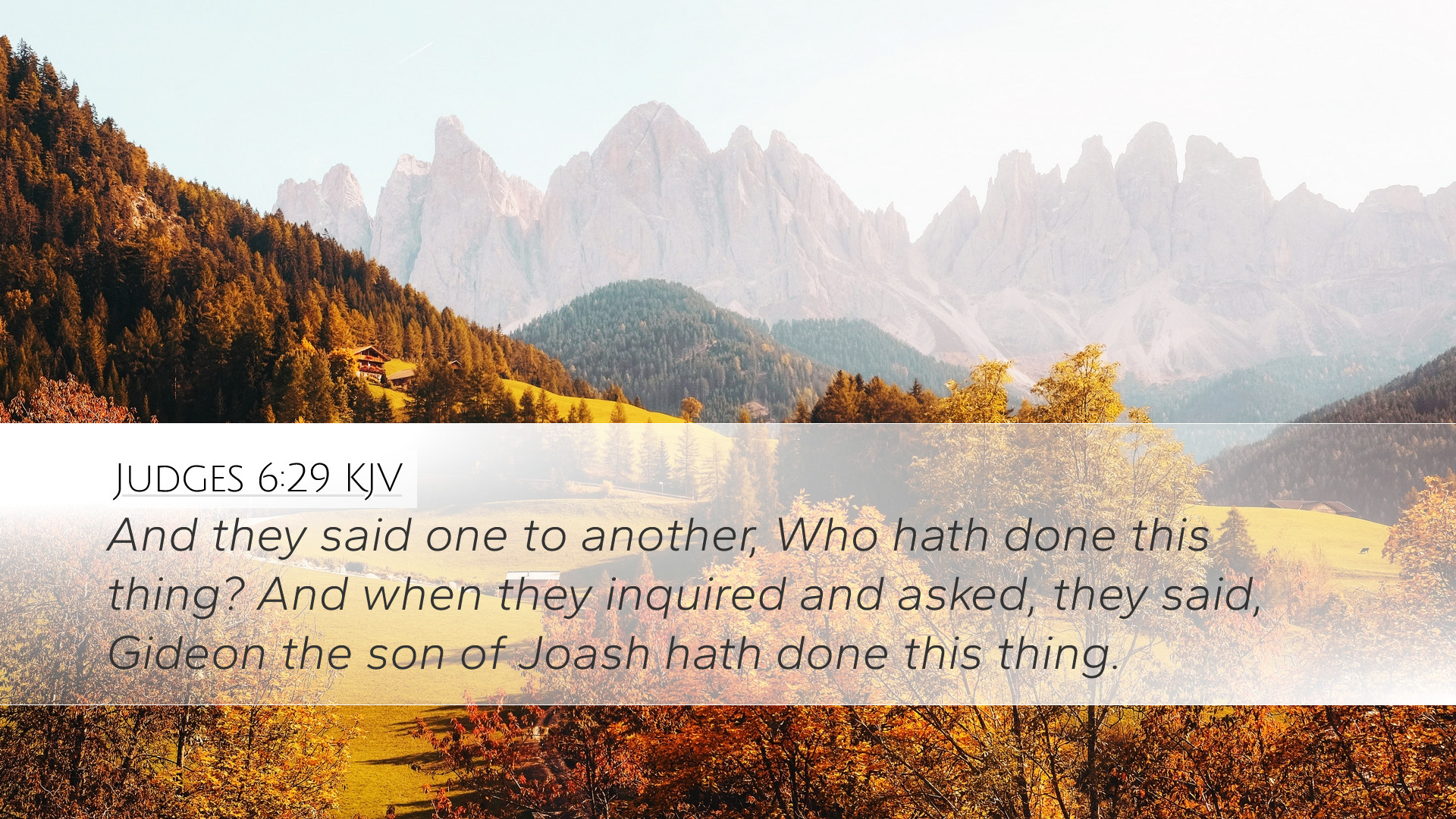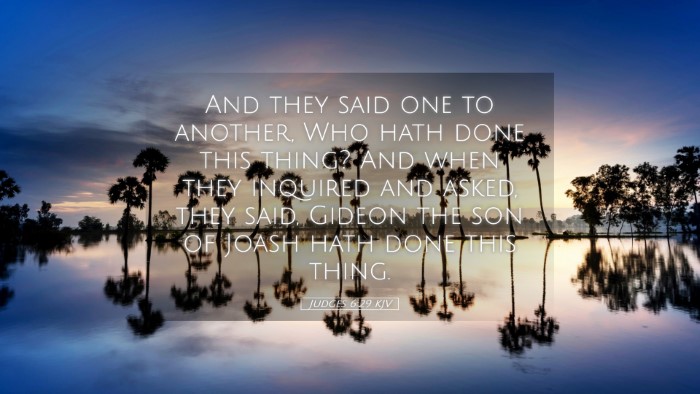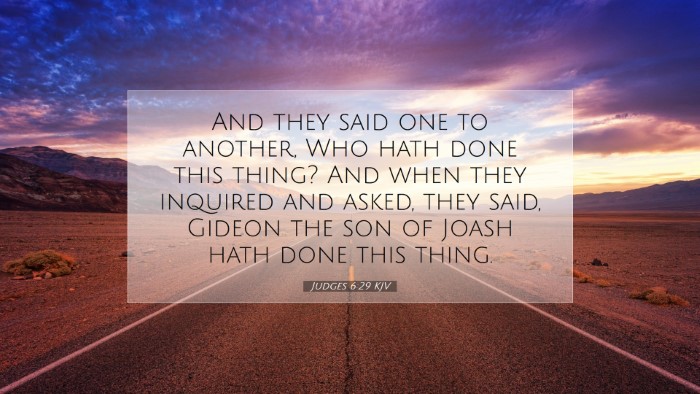Old Testament
Genesis Exodus Leviticus Numbers Deuteronomy Joshua Judges Ruth 1 Samuel 2 Samuel 1 Kings 2 Kings 1 Chronicles 2 Chronicles Ezra Nehemiah Esther Job Psalms Proverbs Ecclesiastes Song of Solomon Isaiah Jeremiah Lamentations Ezekiel Daniel Hosea Joel Amos Obadiah Jonah Micah Nahum Habakkuk Zephaniah Haggai Zechariah MalachiVerse
Judges 6:1 Judges 6:2 Judges 6:3 Judges 6:4 Judges 6:5 Judges 6:6 Judges 6:7 Judges 6:8 Judges 6:9 Judges 6:10 Judges 6:11 Judges 6:12 Judges 6:13 Judges 6:14 Judges 6:15 Judges 6:16 Judges 6:17 Judges 6:18 Judges 6:19 Judges 6:20 Judges 6:21 Judges 6:22 Judges 6:23 Judges 6:24 Judges 6:25 Judges 6:26 Judges 6:27 Judges 6:28 Judges 6:29 Judges 6:30 Judges 6:31 Judges 6:32 Judges 6:33 Judges 6:34 Judges 6:35 Judges 6:36 Judges 6:37 Judges 6:38 Judges 6:39 Judges 6:40

